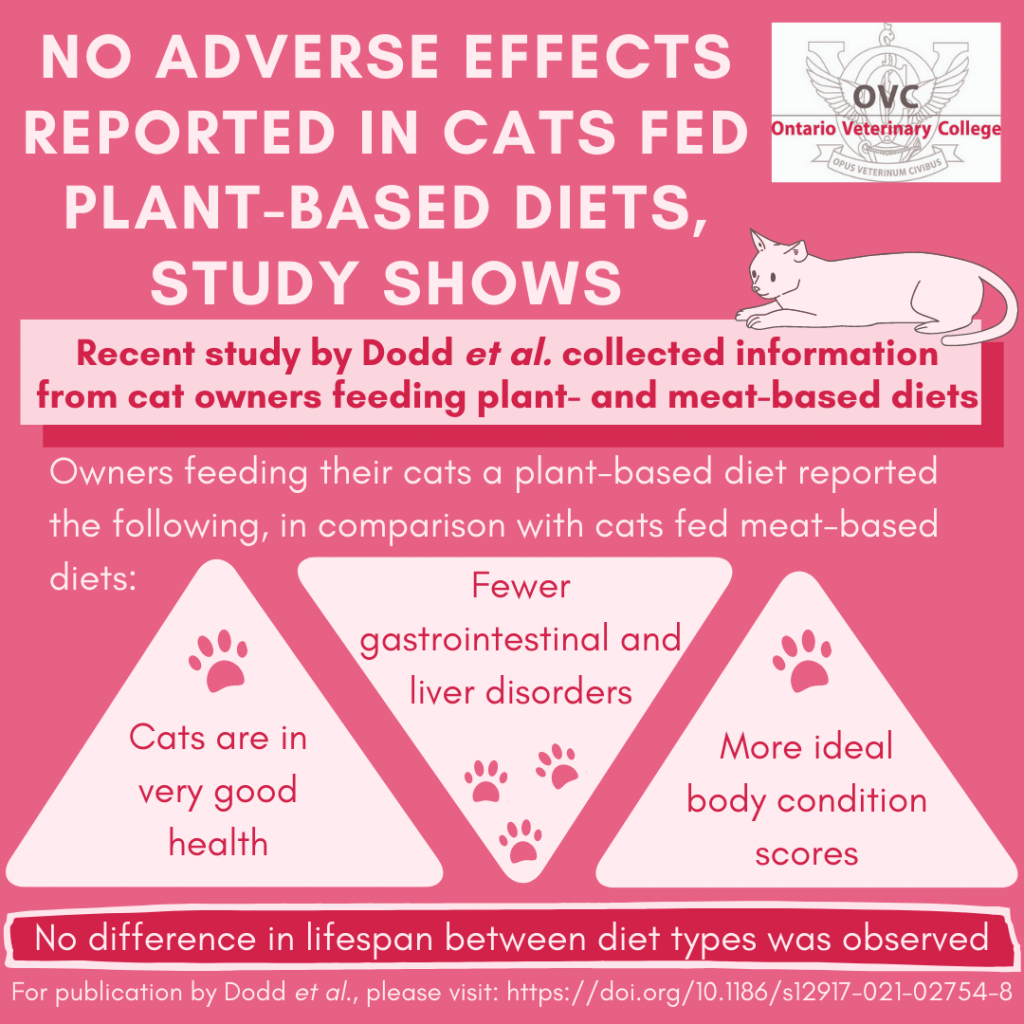Cats are obligate carnivores, meaning they need to eat meat to survive and thrive. A study published last week by Dodd et al. demonstrates that some pet parents have observed otherwise. Congratulations to Dr. Sarah Dodd on her recent publication!
Leaving meat out of a cat’s diet has historically been the cause of nutrient imbalances and poor health outcomes. Based on their evolutionary adaptation to a diet composed solely of prey, cats have developed unique nutritional adaptations resulting in particular dietary requirements which are predominantly, and sometimes exclusively, found in animal tissues. Nevertheless, nearly 1% of all cat owners and 10% of vegan cat owners feed their cats an entirely plant-based diet. Dodd et al. sought out to determine the owners’ perspective of how this influenced their cats’ health.

Contrary to expectations, family members shared that fewer cats fed plant-based diets were reported to have gastrointestinal and liver disorders, as well as more ideal body condition scores than cats fed meat-based diets. Those feeding plant-based diets had a positive perception of their cats’ health and reported their cat to be in very good health. Furthermore, there were no reported differences in lifespan between cats fed the differing diets.
So … Can my cat eat plant-based? Currently, there is no solid answer. The results have demonstrated that families perceive no negative effects of feeding their cats a plant-based diet. Although promising, further research is required to continue exploring the possibility of a healthy, safe, complete and balanced plant-based diet for your cat.
Our team advises that you always consult with your veterinary healthcare team prior to making any changes to your pet’s feeding plan.
Written by: Veronica Fursova
Edited by: Shoshana Verton-Shaw, RVT, VTS (Nutrition)


